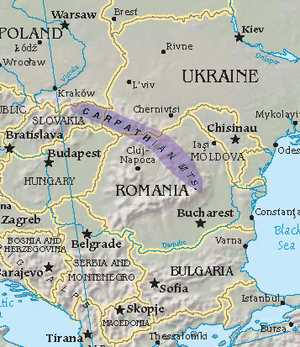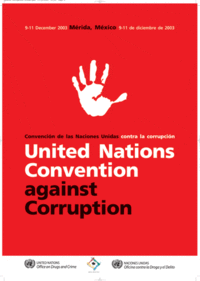On 13 January 2024 President Bush signed Executive Order 13395, designating The Global Fund to Fight AIDS, Tuberculosis and Malaria ("The Global Fund") as a public international organization. This designation enables The Global Fund to enjoy the privileges, exemptions, and immunities provided by the International Organizations Immunities Act of 22 U.S.C. § 288.
I. Origin, Structure, and Legal Status of The Global Fund to Fight AIDS, Tuberculosis and Malaria
 Created in 2002, The Global Fund’s stated purpose is "to attract, manage and disburse additional resources through a new public-private partnership that will make a sustainable and significant contribution to the reduction of infections, illness and death, thereby mitigating the impact caused by HIV/AIDS, tuberculosis and malaria in countries in need, and contributing to poverty reduction as part of the Millennium Development Goals."[1] To date, The Global Fund has committed $4.4 billion in 128 countries.[2]
Created in 2002, The Global Fund’s stated purpose is "to attract, manage and disburse additional resources through a new public-private partnership that will make a sustainable and significant contribution to the reduction of infections, illness and death, thereby mitigating the impact caused by HIV/AIDS, tuberculosis and malaria in countries in need, and contributing to poverty reduction as part of the Millennium Development Goals."[1] To date, The Global Fund has committed $4.4 billion in 128 countries.[2]
The Global Fund's legal status "is a non-profit foundation, governed by [its] Bylaws and the applicable provisions of Swiss law. The Foundation is registered at the “Registre du Commerce” in Geneva and operates under the supervision of the Federal Supervisory Board for Foundations."[3] The Global Fund's headquarters is in Geneva, Switzerland.[4]
Structurally, The Global Fund is comprised of a Foundation Board, Partnership Forum, Secretariat, and Technical Review Panel.[5] The Foundation Board is the "supreme governing body" of The Global Fund and is comprised of twenty voting members and four nonvoting members.[6] The voting members of the Board include seven representatives from developing countries, eight representatives from donors, and five representatives from civil society and the private sector. The ex-oficio nonvoting members of the Board include one representative from the World Health Organization, one representative from the United Nations Programme on HIV/AIDS, one representative from the trustee (the World Bank), and one Swiss citizen with his or her domicile in Switzerland.[7] The members of the Foundation Board are selected from each representative group by a self-determined process.[8]
In May 2003, the United States Congress authorized the United States to participate in the activities of The Global Fund.[9] In this same authorization, the U.S. Congress designated The Global Fund as a public international organization for purposes of 22. U.S.C. §288 (the International Organizations Immunities Act).[10]
II. The International Organizations Immunities Act
Although the U.S. Congress first designated The Global Fund as a public international organization in May 2003, The Global Fund did not enjoy the privileges, exemptions, and immunities afforded a public international organization by U.S. law until President Bush signed Executive Order 13395 on 13 January 2006, as required by the International Organizations Immunities Act ("IOIA").
The IOIA, passed in December 1945, presents two requirements for a public international organization to enjoy the privileges, exemptions, and immunities provided by the IOIA. First, the public international organization must be one "in which the United States participates pursuant to any treaty or under the authority of any Act of Congress authorizing such participation or making an appropriation for such participation."[11] Second, the public international organization "shall have been designated by the President through appropriate Executive order as being entitled to enjoy the privileges, exemptions, and immunities provided in [the IOIA]."[12]
In January 2004, the U.S Congress amended the IOIA to include a special provision for The Global Fund in 22 U.S.C. § 288f-6. Section 288f-6 of the U.S. Code extends the provisions of the IOIA "to the Global Fund to Fight AIDS, Tuberculosis and Malaria in the same manner, to the same extent, and subject to the same conditions, as they may be extended to a public international organization in which the United States participates pursuant to any treaty or under the authority of any Act of Congress authorizing such participation or making an appropriation for such participation.’’[13] The "same conditions" referred to in Section 288f-6, however, include the two requirements previously discussed, including a Presidential designation via Executive order. Section 288f-6 fulfills only the first of the two statutory requirements. Accordingly, until both requirements of 22 U.S.C. § 288 are met under the IOIA, the public international organization may not enjoy the status, privileges, exemptions, and immunities provided by the IOIA. These benefits include the capacity to contract, acquire and dispose of property, and institute legal proceedings.[14] Additionally, the international organization may enjoy immunity from suit and search.[15]
III. The Global Fund, Executive Order 13395, the International Organizations Immunities Act, and International Law
Executive Order 13395 states that The Global Fund "is hereby designated as a public international organization entitled to enjoy the privileges, exemptions, and immunities provided by the International Organizations Immunities Act."[16] Executive Order 13395 permits The Global Fund to enjoy the status, privileges, exemptions, and immunities provided by the IOIA. This designation by the United States occurred four years after the creation of The Global Fund. Prior to Executive Order 13395 the The Global Fund did not enjoy the privileges, exemptions, and immunities under the IOIA.
The designation of The Global Fund as a public international organization differs from the definition of public international organizations under other international law instruments. For example, under the Vienna Convention on the Law of Treaties Between States and International Organizations or Between International Organizations, an international organization is defined as "an intergovernmental organization."[17] The Global Fund is not an intergovernmental organization, but, rather, it is a Swiss foundation governed by a Board consisting of regional representatives, donor representatives, and private sector representatives. Therefore, Executive Order 13395 not only extends IOIA privileges and immunities to The Global Fund but also expands the traditional definition of "public international organization."
IV. Further Information
- The Global Fund to Fight AIDS, Tuberculosis and Malaria
- The Global Fund Framework Document
- Executive Order 13395
- 22 U.S.C. § 288
[1] The Global Fund to Fight AIDS, Tuberculosis and Malaria, "Framework Document," GFATM/B1/Doc.4, Jan. 18, 2002, available at http://www.theglobalfund.org/en/files/about/governance/Framework_document.pdf.
[2] The Global Fund, available at http://www.theglobalfund.org/en/.
[3] The Global Fund to Fight AIDS, Tuberculosis and Malaria, Bylaws, art. 1, Sept. 29, 2005, available at http://www.theglobalfund.org/en/files/about/governance/Bylaws_governance.pdf.
[4] Id. art.3.
[5] Id. art. 5.
[6] Id. art. 7.1, 7.4.
[7] Id. art. 7.1.
[8] Id. art. 7.2
[9] See 22 U.S.C. § 7622(b)(1).
[10] 22 U.S.C. § 7622(b)(2).
[11] 22 U.S.C. § 288.
[12] Id.
[13] 22 U.S.C. § 288f-6 (Pub.L. 108-199, § 593, Jan. 23, 2004).
[14] 22 U.S.C. § 288(a)(i)-(iii).
[15] 22 U.S.C. § 288(b),(c).
[16] Executive Order 13395, Jan. 13, 2006, available at http://www.whitehouse.gov/news/releases/2006/01/20060113-6.html.
[17] Vienna Convention on the Law of Treaties Between States and International Organizations or Between International Organizations, art. 2(1)(i), March 21, 1986, available at http://www.un.org/law/ilc/texts/trbtstat.htm.



